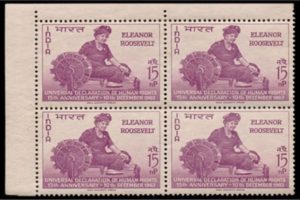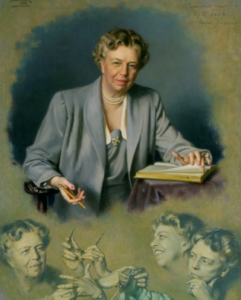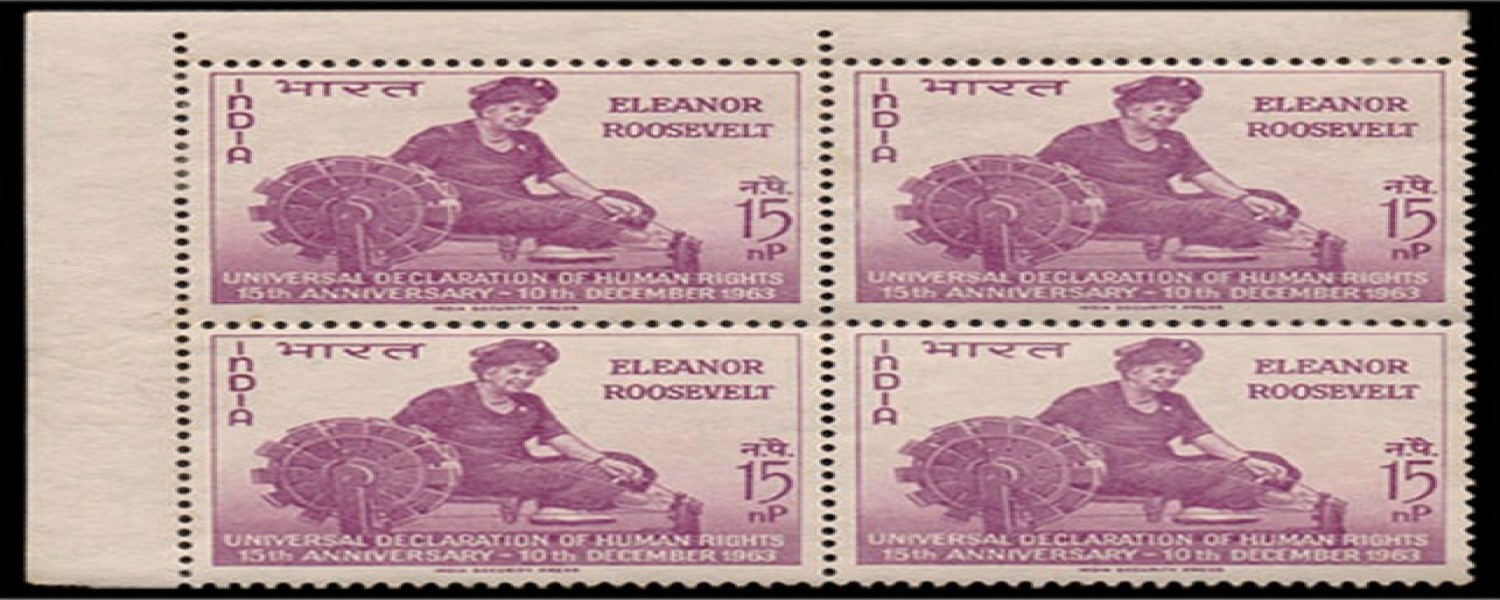You Learn By Living: Amazing Advice from Eleanor Roosevelt!
I must admit that when I came across a book called You Learn by Living: Eleven Keys to a More Fulfilling Life, I was a little skeptical…yet curious. The reason for my skepticism was because the book was written almost 60 years ago, and I wondered how relevant those “keys” to a more fulfilling life would be in today’s fast-paced, hyper-connected world.
The reason for my curiosity was that the book was written by former first lady, Eleanor Roosevelt. I have long admired Eleanor and her amazing life story and thought if there was anyone whose advice could stand the test of time, it would be hers. I mean, you don’t come in at #9 on Gallup’s List of People that American’s Most Widely Admired in the 20th Century if you have not done some remarkable things in your life and learned some incredible things!

Before we go any further…Grab a pen and a piece of paper and see if you can guess who the other 9 people are, we will reveal them at the end of this blog post.
Give yourself a point for each and if you want, let us know how you did by posting in the comments at the bottom of the blog post.
Back to the book…Well, it turns out that it delivered in a big way! The advice given by Eleanor Roosevelt in You Learn by Living: Eleven Keys to a More Fulfilling Life was not only sage but also extraordinarily timeless as you will see.
One of My Favorite Parts of the Book Came Early On…
In the Preface, Roosevelt mentions how she had received hundreds of thousands of letters asking her a variety of questions that could best be combined to ask:
“What have you learned from life that might help solve this or that difficulty?”
This question forced her to reflect and take the time to discover what she had learned by living:
“When one attempts to set down in bald words any answers one has found to life’s problems, there is a great risk of appearing to think that one’s answer is either the only one or the best one. This, of course, would be nonsense. I have no such all-inclusive wisdom to offer, only a few guideposts that have proved helpful to me in the course of a long life. Perhaps they may steer someone away from the pitfalls into which I stumbled or help them to avoid the mistakes I have made. Or perhaps one can learn only by one’s own mistakes. The essential thing is to learn.
Learning and living. But they are really the same thing, aren’t they? There is no experience from which you can’t learn something. When you stop learning you stop living in any vital and meaningful sense. And the purpose of life, after all, is to live it, to taste the experience to the utmost, to reach out eagerly and without fear for newer and richer experience.” 1
With that being said, I have tried to extract some of Eleanor’s ‘guideposts’ (as she calls them) that were helpful to me and I hope they are helpful to you too!
Some ‘Guideposts’ from Eleanor Roosevelt’s “You Learn By Living”
(1) Being Interested Is Critical to Learning
“The learning process must go on as long as we live. Nothing alive can stand still, it goes forward or back. Life is interesting only as long as it is a process of growth; or, to put it another way, we can only grow as long as we are interested.” 1
Guidepost: It is much easier to learn about things that you are interested in, which will be a catalyst for your self-growth.
(2) Facing Your Fear Can Help You Come to Grips with It
“The encouraging thing is that every time you meet a situation, though you may think at the time it is an impossibility and you go through the tortures of the damned, once you have met it and lived through it you find that forever after you are freer than you ever were before.” 1
Guidepost: By facing and conquering your fears it gives you the courage, strength, and confidence to tell yourself next time, “I lived through this horror. I can take the next thing that comes along.”
(3) Time Management 101 – Eleanor Roosevelt Style!
Most of us probably think the concept of time management is a recent phenomenon, I know I sure did. Boy was I wrong!
Roosevelt gives some fantastic advice on time management that sounds eerily familiar to what we are discussing these days:
“First, by achieving an inner calm so that I can work undisturbed by what goes on around me.” 1
Guidepost: This sounds a lot like the concept of mindfulness to me, which we discussed in a recent post on simple meditation. The idea of simple meditation is a practice where you engage in concentrated focus to pay attention to your breath, a sound, your body, attention itself, etc. to become more aware of the present moment.
“Second, by concentrating on the thing in hand.” 1
Guidepost: Sounds like Eleanor, like us, wasn’t a big fan of multi-tasking, also known as task-switching either! Be present and focus on the task at hand before moving to the next task. Consider using batching to group similar tasks.
“Third, by arranging a routine pattern for my days that allots certain activities to certain hours, planning in advance for everything that must be done, but at the same time remaining flexible enough to allow time for the unexpected.” 1
Guidepost: Schedule your tasks but leave room for the unexpected. Her allotting certain activities to certain hours sounds a lot like time blocking to me!
(4) A Big Part of the Maturity of a Human Personality is Self-Knowledge
“One must be willing to have knowledge of oneself. You have to be honest with yourself. You must try to understand truthfully what makes you do things or feel things. Until you have been able to face the truth about yourself you cannot be really sympathetic or understanding in regard to what happens to other people.” 1
Guidepost: This is similar to the concept of self-awareness that we discussed in a recent blog post. As we said, self-awareness is simply being aware of how we feel in any given situation – both positive and negative. It is being able to read your own emotions. By doing this you will understand both your strengths and limitations which will help you gauge your moods and how they affect others.
While I could share many more guideposts of wisdom from Eleanor Roosevelt’s You Learn by Living, I will share one final nugget of wisdom, that being…
(5) Eleanor’s Definition of Success
In a previous post, I shared former legendary UCLA basketball coach John Wooden’s definition of success which was:
“Success is peace of mind, which is a direct result of self-satisfaction in knowing you did your best to become the best that you are capable of becoming.”
Roosevelt’s is similar but has an added dimension:
“Success must include two things: the development of an individual to his utmost potentiality and a contribution of some kind to one’s world.” 1
Guidepost: The definitions are similar in that they both include fulfilling one’s potential as an individual. Roosevelt also includes making a contribution to the greater good, which I really like!

So, How Many of the Other 9 Did You Get Right?
Before we go, let’s quickly review Gallup’s List of People that Americans Most Widely Admired in the 20th Century to see how many you got correct:
(1) Mother Teresa
(2) Martin Luther King, Jr.
(3) John F. Kennedy
(4) Albert Einstein
(5) Helen Keller
(6) Franklin D. Roosevelt
(7) Billy Graham
(8) Pope John Paul II
(9) Eleanor Roosevelt
(10) Winston Churchill
Interesting, huh? Please share your thoughts on this blog post and your score (if you are so brave!) in the comments below!
Let’s end with this final thought from Eleanor Roosevelt:
“One’s philosophy is not best expressed in words, it is expressed in the choices one makes. In stopping to think through the meaning of what I have learned, there is much I believe intensely, much I am unsure of. But this, at least, I believe with all my heart: In the long run, we shape our lives and we shape ourselves. The process never ends until we die. And the choices we make are ultimately our own responsibility.” 1
Until next time, keep shaping your life and yourself and as always…PYMFP!
–Rick
P.S. Wanna know more? Check out the entire book.
Use it or Lose It – Guideposts from You Learn By Living
Some ‘guideposts’ from Eleanor Roosevelt’s You Learn By Living include:
(1) Being interested is critical to learning.
(2) Facing your fear can help you come to grips with it.
(3) Achieve an inner calm to work better.
(4) Concentrate fully on the task at hand.
(5) Schedule tasks but leave room for the unexpected.
(6) Be self-aware – try to understand truthfully what makes you do things or feel things.
(7) Success includes two things according to Eleanor: the development of an individual to his utmost potentiality and a contribution of some kind to one’s world.
When to Use It
Use these guideposts from You Learn By Living anytime they make sense in your life.
What Do You Think?
What do you think of these guideposts from Eleanor Roosevelt’s You Learn By Living? How many of the other 9 people did you guess correctly? Please share your thoughts in the comments below!
If you enjoyed this post, it would mean the world to us if you shared it with people you care about via any of the social media platforms below!
Popular Previous Posts:
Relationship Management: This is How to Build Better Bonds
Social Awareness: How to Be Aware of Others’ Emotions!
Self-Management: How to Take Control of Your Emotions
Self-Awareness: This is How to Be More Self-Aware!
EQ vs. IQ: This is How to Improve Your Emotional Intelligence
References
You Learn By Living by Eleanor Roosevelt

